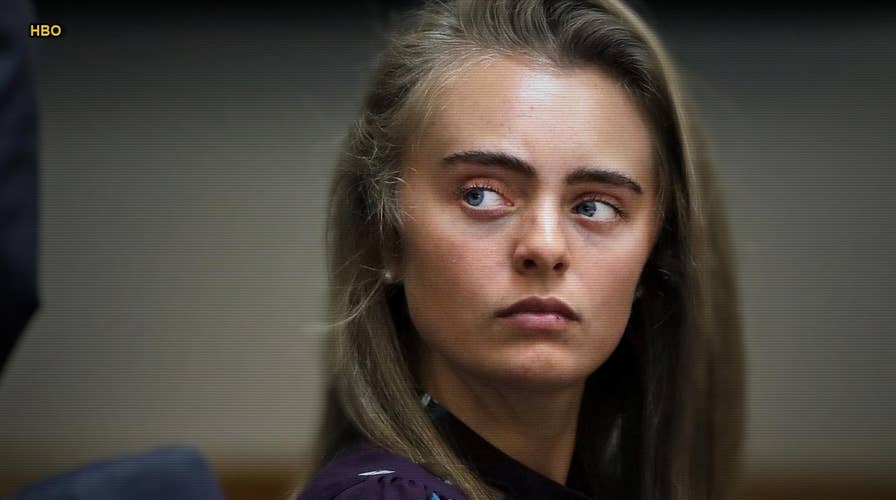New Michelle Carter doc on HBO compels Conrad Roy's grieving parents to come forward: 'It was horrible'
Filmmakers Erin Lee Carr and Alison Byrne discuss their new HBO documentary titled 'I Love You, Now Die: The Commonwealth v. Michelle Carter' concerning the death of Conrad Roy III.
With their new documentary “I Love You, Now Die," Erin Lee Carr and Alison Byrne wanted to shed new light on one of the darkest true crime cases to recently rock Massachusetts.
The director and co-producer are the filmmakers behind HBO’s new two-part docudrama, which goes inside the 2014 story of a young Massachusetts woman, Carter, who urged her then-boyfriend, Conrad Roy III, to take his own life through a series of text messages. The now 22-year-old was convicted in 2017 of involuntary manslaughter and ordered to serve 15 months behind bars.
TEXAS MAN CONVICTED OF DOUBLE MURDER EXPLORED IN NEW DOC
As a filmmaker, Carr has previously tackled controversial cases. In 2015, she directed “Thought Crimes” about the infamous cannibal cop in New York City, followed by 2017’s “Mommy Dead and Dearest” concerning the murder case of Gypsy Rose Blanchard. Most recently, she chronicled the Larry Nassar and the U.S. gymnastic abuse scandal for this year’s “At the Heart of Gold.”
For “I Love You, Now Die,” Roy’s parents, Lynn Roy and Conrad Roy Jr., participated in the film. Carter and her parents declined to come forward
“It was horrible,” Carr told Fox News about Roy’s parents reliving their painful loss on camera. “I’m somebody [who] is no spring chicken when it comes to this. I cover disturbing crime stories, but there is something so singular about having to bury your child. And so there’s a tremendous amount of sensitivity that we had to interact with.”
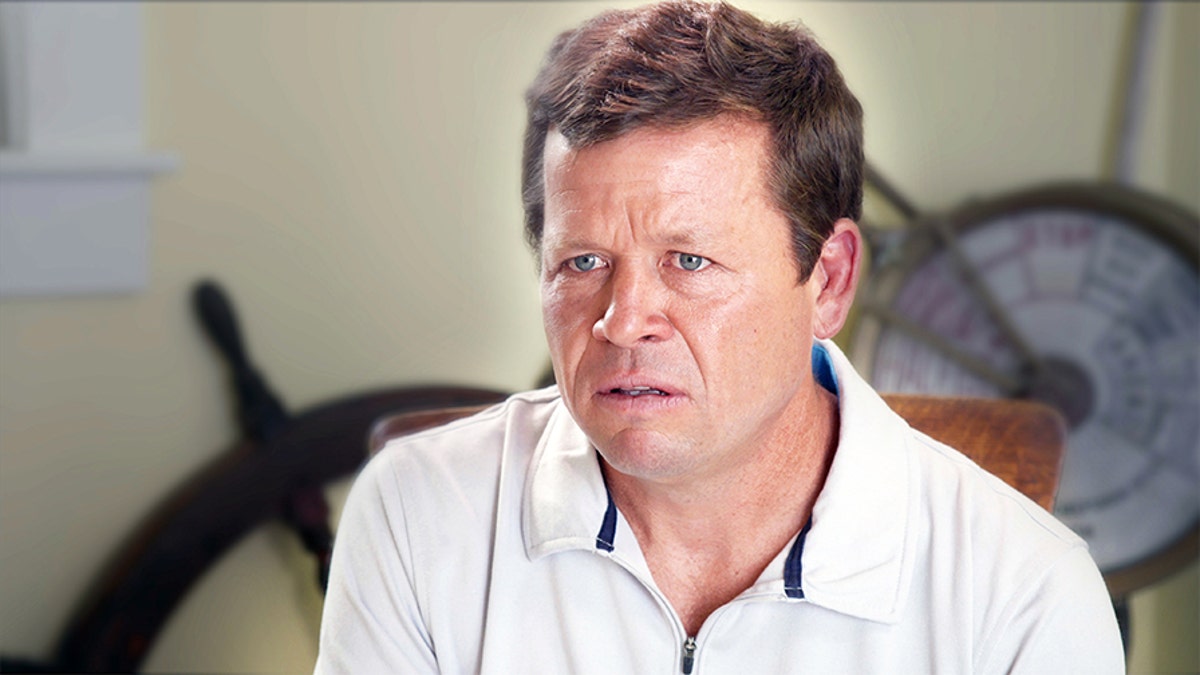
Conrad Roy's father, Conrad Roy Jr. (HBO)
Byrne admitted she couldn’t hold back tears when it came to speaking with the grieving parents.
TEXAS MAN RECALLS LOSING HIS WIFE TO 'DR. DEATH' IN NEW DOC
“I remember sitting at the table when Conrad’s dad was interviewed and he started to cry and I’m sitting there starting to cry,” said Byrne. “I just think it was really strong and brave of them to talk to us…. It’s a tough thing to do as a filmmaker.”
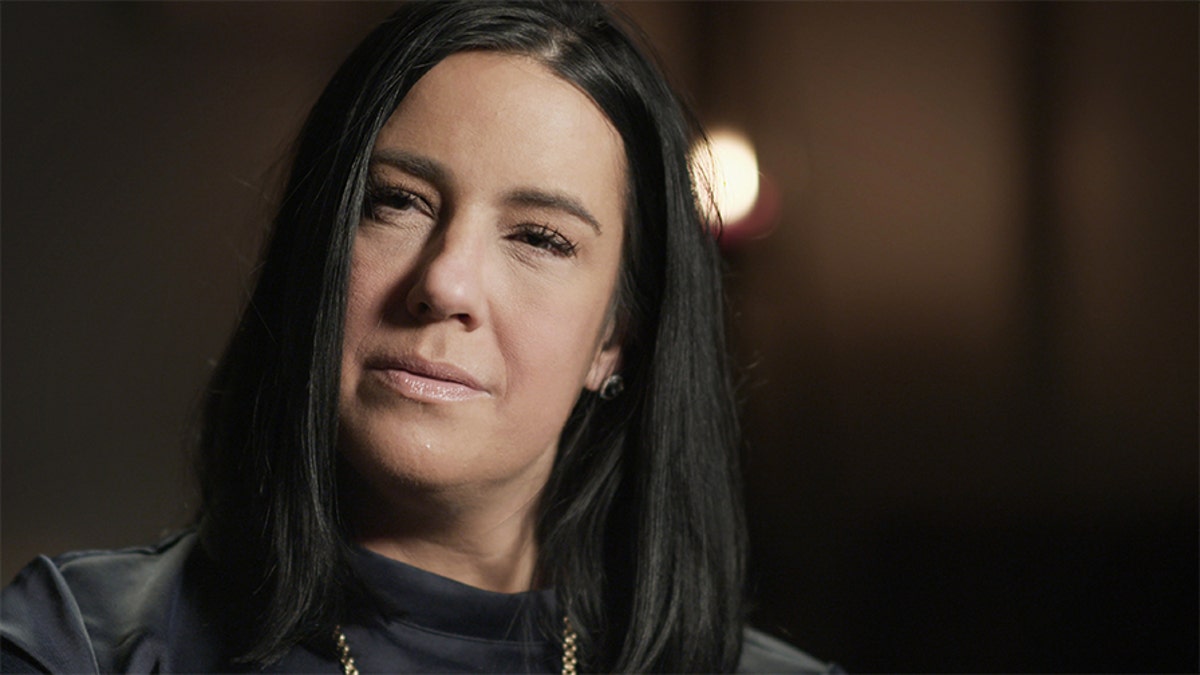
Conrad Roy's mother, Lynn Roy. — HBO
Carter was 17 in July 2014 when she persuaded Roy, 18, to kill himself through dozens of text messages and phone calls, prosecutors said. Roy died when his pickup truck filled with carbon monoxide in a store parking lot.
“You can’t think about it. You just have to do it. You said you were gonna do it. Like I don’t get why you aren’t,” Carter wrote in one text, chastising him for hesitating. She texted him on the day he died: “You keep pushing it off and say you’ll do it but u never do. It’s always gonna be that way if you don’t take action.”
Carr and Byrne stressed their goal wasn’t to portray Carter as a "black widow." In fact, the documentary does take a close look at how Carter and Roy both struggled with mental illness. Roy, who suffered from anxiety and depression, had previously tried to kill himself.
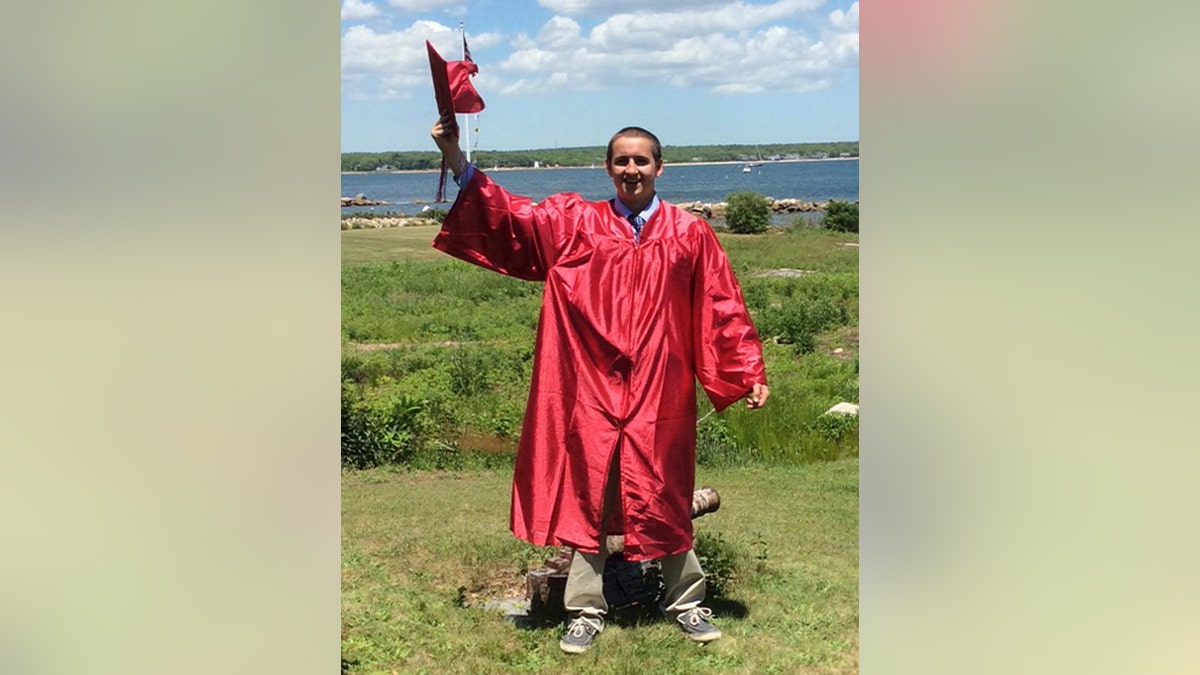
Conrad Roy III. — AP
HISTORIAN EXPLORES 'ADOLF ISLAND' IN DOC
“At first it looks like she’s just this mean girl,” Byrne explained about Carter. “One of the things that surprised me was when I realized who we thought were her friends from text messages… actually testified for the prosecution and talked about her being an attention-seeker and her being clingy and her using her own problems, even Conrad’s death, to try to get attention. But then we also learned so much more about her own struggles with mental health. I think I was surprised at how much sympathy I could have with her and go back and forth, really, with my opinions about her.”
“I think it was a very clear and simple narrative that Michelle Carter is a beautiful, privileged white girl who killed a young man to become popular,” Carr explained. “It’s something that we easily attach to as a society. We have troubling thoughts about teenage girls and that they are coercive. But I think that as we examined the case and looked at the court documents and filmed the trial, that just wasn’t true… What I think the film is really about is deconstructing that narrative.”

Michelle Carter in court. — HBO
Byrne said Roy’s parents struggled to make sense of their son’s tragic passing.
“Ultimately... they thought he was in a good place,” said Bryne. “Because… he had been open with them before and he got therapy before. They felt terrible for him for the social anxiety he felt at school and didn’t quite know how to help… I felt like they had done the best that they could… And I think they didn’t, again, realize that he was no longer talking to them or a therapist. He was talking exclusively to this one girl on his phone.”
FORMER HEAVEN'S GATE FOLLOWER TELLS ALL

One of Michelle Carter's text messages to Conrad Roy. — HBO
Carter and Roy both lived in Massachusetts but met in Florida in 2012 while both were on vacation with their families. Their relationship consisted mainly of texting.
The Washington Post reported Carter had planned to seek treatment for an eating disorder and initially urged Roy to get help. But “as the victim continued researching suicide methods and sharing his findings with the defendant, the defendant helped plan how, where and when he would do so, and downplayed his fears about how his suicide would affect his family,” the court wrote, citing several text messages.
In 2014, Roy was having doubts about going through with the suicide. In response, she texted, “I thought you wanted to do this. The time is right and you’re ready, you just need to do it!” The pair discussed methods, including carbon monoxide poisoning.
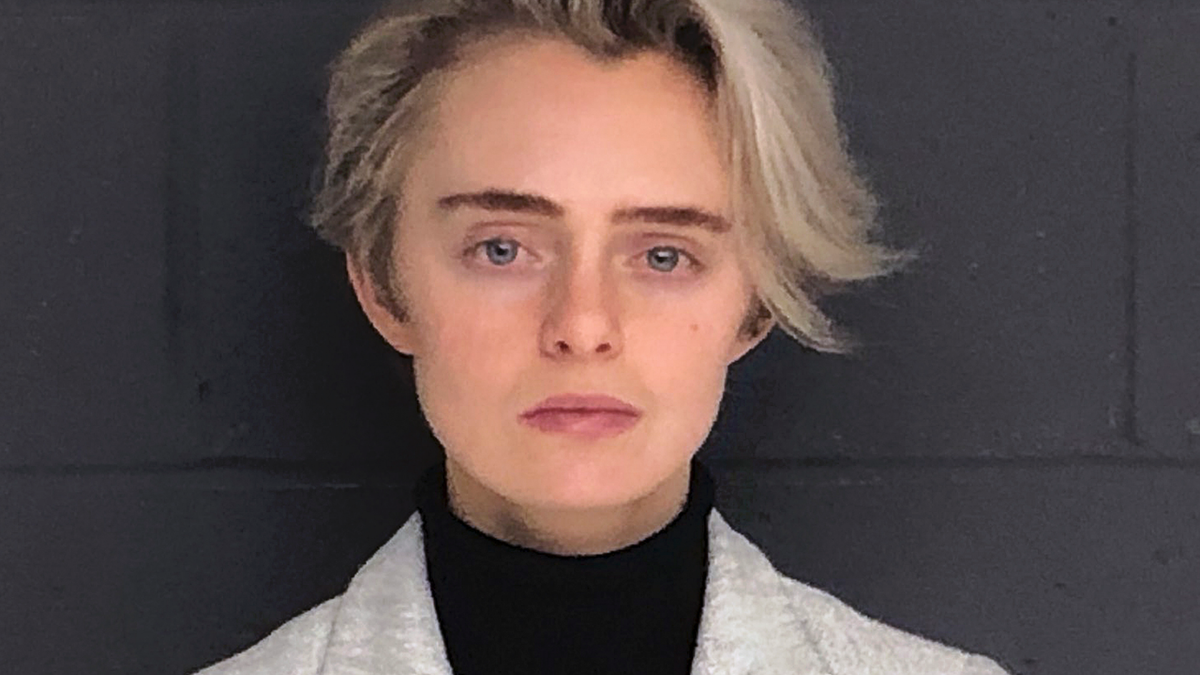
This Feb. 11, 2019, booking photo released by the Bristol County Sheriff's Office shows Michelle Carter, convicted for sending a barrage of text messages urging boyfriend Conrad Roy III to kill himself. (Bristol County Sheriff's Office via AP, File)
“Conrad Roy wanted to get his captain’s license,” said Carr. “They lived in Mattapoisett, Massachusetts, and it’s a huge coastal town. To get your captain’s license you need hours and hours and hours of practical training. And so when this young man did the training and got his captain’s license they said, ‘He’s working towards something. He’s OK.’
NURSE RECALLS CARING FOR DYING AIDS PATIENTS IN NEW DOC
“I think that’s one of the misconceptions of suicidal ideation. If a person is in school, if they’re doing things, that they’re not susceptible to having those same dark thoughts. And I talked to his mother yesterday and she just said, ‘He was moving forward. I was with him all day. That was my understanding that he was OK because he was talking about going to Fitchburg State.' Even if [it] looks there are signs towards moving on with their life, they may not.”
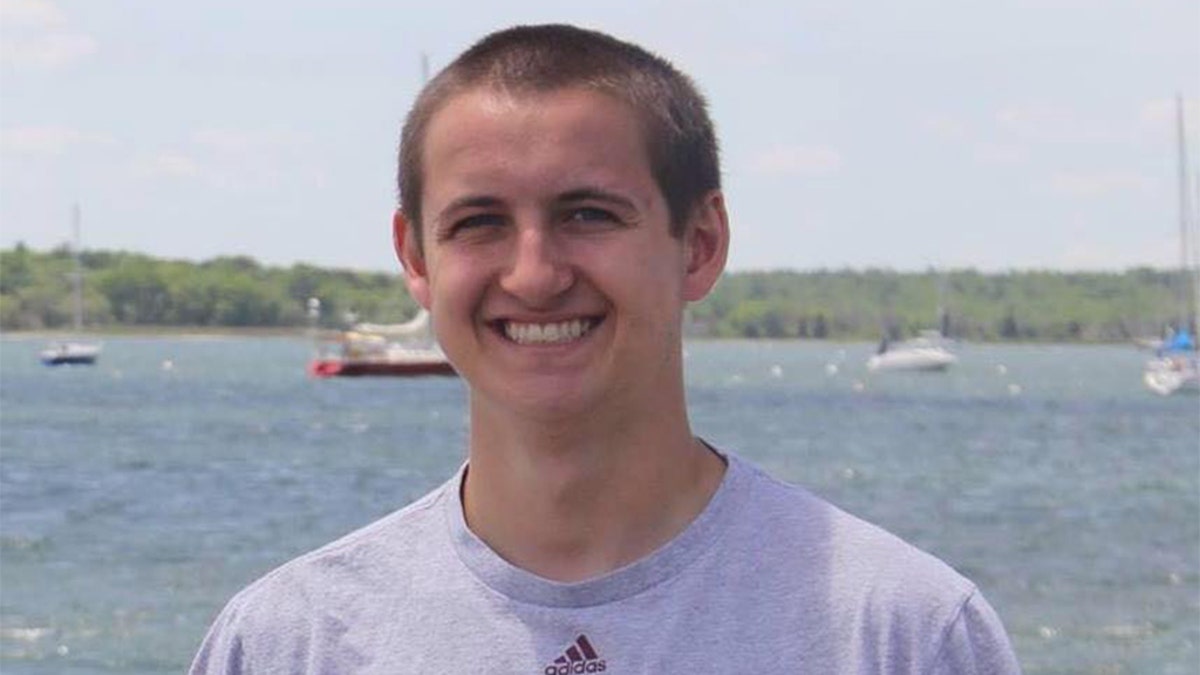
Conrad Roy III. (Facebook)
In February of this year, Massachusetts’ highest court upheld Carter’s involuntary manslaughter conviction. The Supreme Judicial Court said in a unanimous decision that Carter’s actions caused Roy to die.
“After she convinced him to get back into the carbon monoxide-filled truck, she did absolutely nothing to help him,” Justice Scott Kafker wrote. “She did not call for help or tell him to get out of the truck as she listened to him choke and die.”
FORMER NXIVM FOLLOWER TELLS ALL
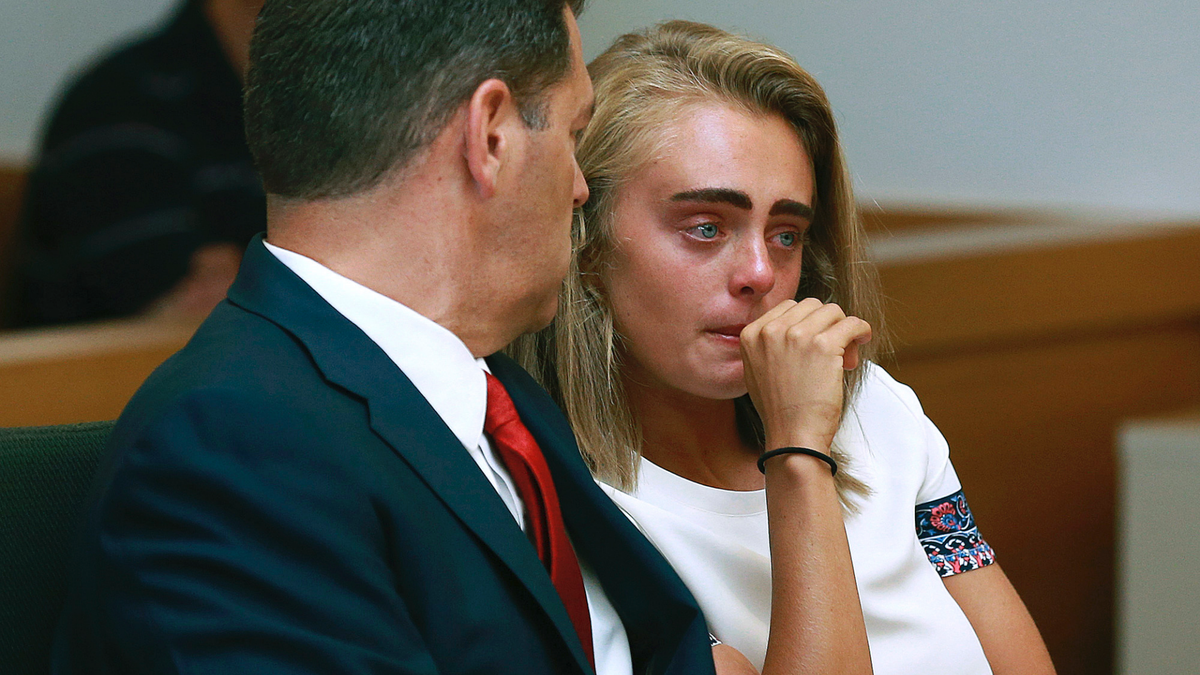
Michelle Carter awaits her sentencing in a courtroom in Taunton, Mass., on Aug. 3, 2017 for involuntary manslaughter for encouraging Conrad Roy III to kill himself. (Matt West/The Boston Herald via AP, Pool, File)
Carter’s lawyers said in an email to the Associated Press they are disappointed in the ruling and will consider appealing to the U.S. Supreme Court, among other legal options. While Carter was sentenced to 15 months in jail, she has remained free while she pursues her appeals.
Carter’s lawyers argued she can’t be convicted because of her words alone, noting she wasn’t with Roy when he killed himself and didn’t provide him with the means to do it. They added there was no evidence it would have made a difference if she had called for help, pointing out she didn’t even know where his truck was parked. The court rejected Carter’s argument that she’s being punished for protected free speech.
Byrne said there are many lessons to be learned from this horrific tragedy.
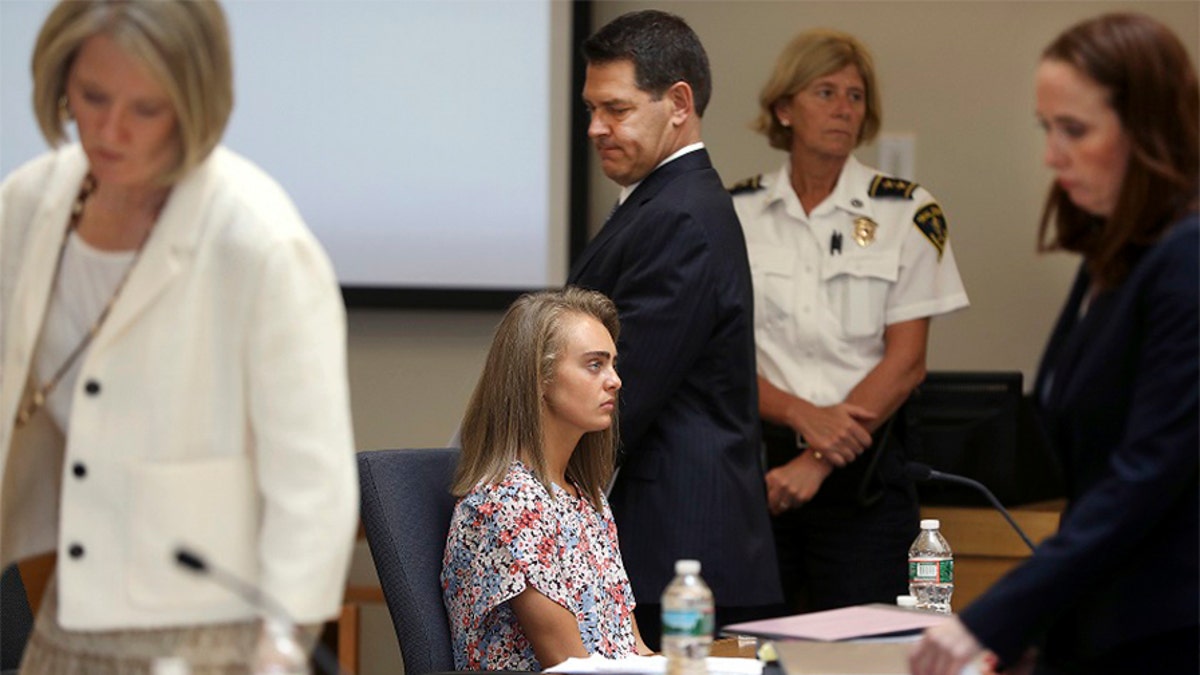
Michelle Carter in Bristol Juvenile Court on June 13, 2017, in Taunton, Mass. (Pat Greenhouse/The Boston Globe via AP, Pool)
“I just want people to remember that these two kids were kids,” she said. “We’re so, ‘She’s 17 years old.’ We, as a society, or as a country, don’t trust her to be mature enough to vote for the mayor of her town. We don’t trust her to buy a beer for four years from then. And yet suddenly, as soon as a crime is committed, it’s like, ‘She knew exactly what she was doing.’ … Because she was tried in adult court, suddenly everyone could know her name and she deals with the court of public opinion, as well as the justice system itself. She’s a kid and he was a kid. It’s really important to remember that.”
CHRIS WATTS' HORRIFIC KILLINGS OF WIFE, DAUGHTERS, STILL HAUNTS INVESTIGATORS, NEW DOC REVEALS
"I Love You, Now Die: The Commonwealth v. Michelle Carter" premieres Tuesday, July 9 at 8 p.m. on HBO.
If you or someone you know is feeling suicidal you can get help by contacting the National Suicide Prevention Lifeline 1-800-273-8255.
Fox News' Nicole Darrah and The Associated Press contributed to this report.








































